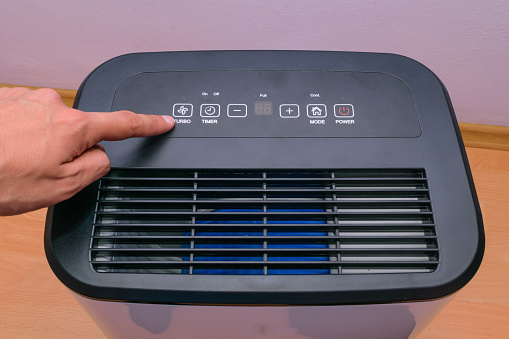
If you’ve ever struggled with chapped lips, dry skin, or an annoying cough, you may have had someone suggest trying a humidifier. And that’s because these magical machines put necessary moisture back in the air of your home. During the winter seasons especially as your home is being heated by a furnace, this necessary humidity is removed from the air, causing discomfort that can aggravate a number of health-related symptoms.
Wondering if the installation of a professional-grade, whole-home humidifier is worth the investment? Here are 10 reasons why it totally is.
- Improves Air Quality
To put it simply, moist air is healthier air. Airborne contaminants like dust, allergens, etc. make it harder to breathe and easier to get sick — and stay sick. Doctors recommend the use of humidifiers to treat respiratory illnesses or help with dry skin or nosebleeds.
And better air quality is also better for your home. Moisture helps prevent warped floors, misshapen windows, and peeling paint. They can also improve your home’s comfort and the efficiency of your furnace, which can ultimately save you significantly on energy bills.
- Prevents Colds & Flus
Research shows that if indoor humidity levels are less than 23%, influenza’s infectivity rate is over 70%, compared to just 14-22% if the humidity is above 43%. In other words, the use of a humidifier can prevent the spread of airborne viruses within your home.
- Helps Dry Skin & Eyes
It’s no secret that dry air is bad for your skin and eyes. When the air around you is dry, it pulls moisture from your body to compensate. And when your skin or eyes aren’t hydrated enough, they become itchy and irritated. By increasing the moisture in the air, humidifiers counteract these effects.
- Soothes a Sore Throat or Cough
The dry seasonal air can be to blame for many sore throats in the winter thanks to the dehydration of the mucous membrane. This same issue can trigger the contraction of the respiratory tract which causes you to cough. So the addition of a humidifier will replace the moisture needed to sooth your respiratory muscles and rid you of that scratchy throat.
- Helps Sinuses & Congestion
By helping to moisten the nasal passage, humidifiers loosen mucus that can build up during sickness. When this mucus becomes too dry, it can become sticky, which makes it harder to remove and increases coughing as a result. More moisture in the air will make it easier to drive out this mucus and help alleviate congestion.
- Prevents Asthma
Asthma is the result of the smooth muscle in the respiratory tract contracting when triggered by allergens such as dirt, dust, pollen, and more. Humidifiers help absorb these allergens to not only prevent asthma, but also reduce allergies minimizing the inflammation of tissues in the nose and throat which dry air can irritate.
Keep in mind, too much humidity can cause mold and dust mites to actually spread, so routine cleaning your humidifier is especially important for people with allergies or asthma to keep humidity levels at bay.
- Reduces Nosebleeds
Dry air can dry out the delicate nasal membranes inside the nose, which increases the occurrence of nosebleeds and other irritations. If you find yourself waking up with frequent nose issues, a humidifier may be the solution you need.
- Improves Sleep Quality
Emerging research shows that the impact of humidifiers on facilitating a good night’s sleep is just as great as ambient temperature. And we all know how difficult it is to sleep in a room that’s far too hot or cold. Increased humidity has been associated with oxygen desaturation and higher arousal, so by maintaining the right level of humidity, better quality of sleep is easier to maintain too.
As a result, humidifiers have been shown to benefit people with sleep apnea, or a condition where breathing is repeatedly interrupted during the sleep cycle. Dry air only makes this condition worse, so by adding water vapor to the air, sleepers can better keep their airways moist as well.
For the same reasons, humidifiers can help reduce snoring, which is not just a win for you, but also for everyone in your home.
- Provides Whitenoise
Dry air isn’t to blame for those random noises keeping you up at night, but a humidifier does provide some nice background noise to help drown them out and prevent nightly disruptions.
10. Helps your Houseplants
Having trouble keeping those houseplants alive? They need moisture too! And a lot of that comes from the air in their environment. And the better you treat them, the better they can help further improve your air quality by producing more oxygen.
So have we convinced you that a humidifier is a valuable addition to your home? If you’d like to learn more about how they work, or why a professional-grade humidifier is more convenient and effective than a portable unit, contact the experts at Madsen Inc today. Our team of certified HVAC technicians can answer any questions you have and install the right unit for you.


